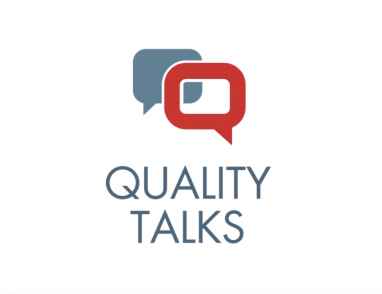1997: NCQA’s First State of Health Care Quality Report
July 16, 2015 · NCQA
25 for 25: A series of 25 blog posts marking NCQA’s 25th anniversary. As part of our anniversary celebrations, NCQA will post a series of 25 blog posts highlighting milestones in our 25 years of improving health care quality.

Like a fresh loaf of bread, good health care quality data can go stale in an empty room. Neither one ages well—without appropriate attention, both quickly become memorials to unmet expectations. In 1997, NCQA faced an “empty room” problem: we had a lot of good data on health plan quality but our audience was sparse and limited to a few Capitol Hill wonks, QI managers and analysts.
That was about to change.
In mid-1997, NCQA’s Communications department set about drafting NCQA’s first Managed Care Quality Report, renamed a year later to the more inclusive State of Health Care Quality Report. In keeping with our organization’s data-minded character, the report was crammed full of numbers: top performers, national averages and regional statistics for the then-current crop of Healthcare Effectiveness Data and Information Set (HEDIS®) measures—beta-blockers, immunizations, mammograms. But the report offered something more. It said what the numbers meant.
Interpretation of the data was (and still is) what made the report newsworthy. The State of Health Care Quality is NCQA’s opportunity to bring successes to light, to underscore opportunities for improvement and to help reporters and the public understand how well—or how poorly—our health care system is performing. In 1997, that kind of system-wide analysis was one of a kind.
The first Report was headed by Barry Scholl, NCQA’s Director of Communications (now vice president of communications at the Commonwealth Fund), who had a vision. “We wanted to elevate the debate about health care,” says Scholl. “We wanted to shift the focus from cost to quality and value.”
Before it was released, there was some internal debate about whether or not to give an early copy of the Report to a few reporters, to help ensure coverage. But Scholl and his team, confident of its value, released it to everyone at the same time. And they were right. Dozens of reporters picked up the story—from the AP, The New York Times, The Washington Post, broadcast news, radio. The shift in focus had begun.
“It was gratifying,” Scholl admits. “We distributed an enormous stack of clips [yes, media stories were still circulated in hard copy back then] the following Monday morning and every one of them had “quality” in the headline. I remember thinking, well I guess we’re doing that again next year.”
And they did. And almost 20 years later, the State of Health Care Quality Report is a much-anticipated annual fixture on NCQA’s fall calendar.
HEDIS® is a registered trademark of the National Committee for Quality Assurance (NCQA).
A cornerstone of NCQA’s 25th anniversary year will include a look ahead through the eyes of tomorrow’s leaders. This November 9, NCQA will convene Quality Talks: Inspiring the Future of American Health Care, a “TED-style” symposium held at the Knight Conference Center at the Newseum in Washington, DC. bringing together hundreds of health care and public policy professionals, including government regulators, thought leaders and Congressional staff.








